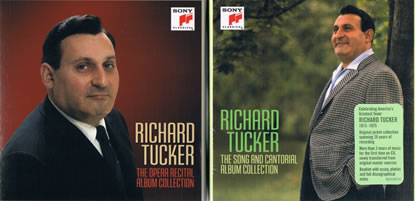

Sony classical 2013, click here to order the cd's
For Richard Tucker’s centenary (28 August 1913) Sony has released all his solo LP’s and MP’s on two beautiful CD boxes. Caveat emptor : Don’t do away with all your Tucker records now because these two new releases regrettably do not represent the complete Richard Tucker recorded output; especially not in the cantorial field. The 45 rpms aren’t released either which is a shame nor are the operatic excerpts (La Juive) and the now extremely rare Man of La Mancha recording which also featured the young Marilyn Horne. On the other hand it’s a welcome release for all those who like Tucker and don’t possess all the LP or Medium Play (10 inch) albums. But this edition also brings up the question of where Richard Tucker stands as a tenor in the history of singing. A tough one as in fact to answer it fairly perhaps one should have heard every tenor live in his prime for as we know recordings can/do often deceive -this listener never heard Tucker in the theatre- everybody born after say 1965 can only judge him (and others) by his (their) recordings whether live or commercial.
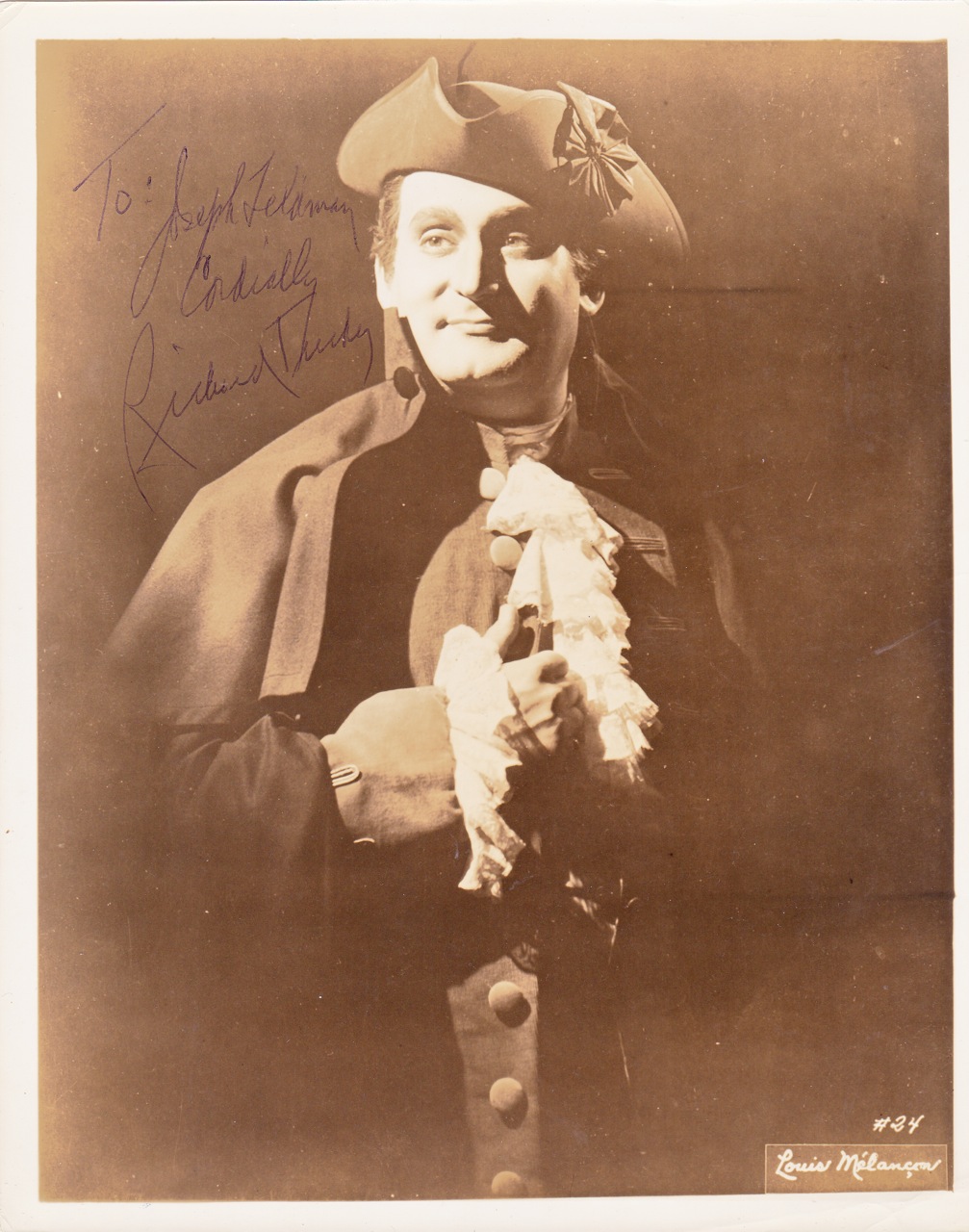
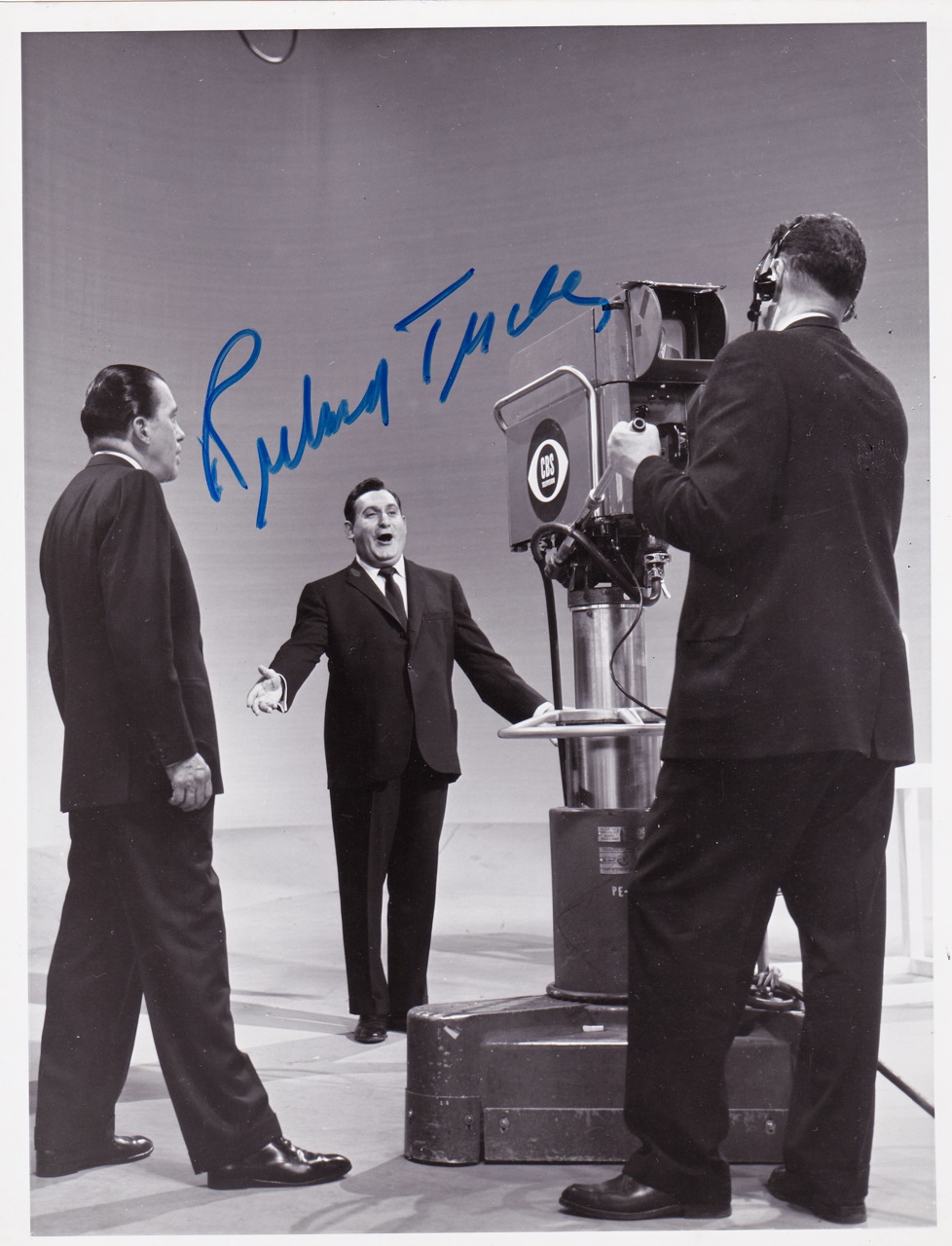
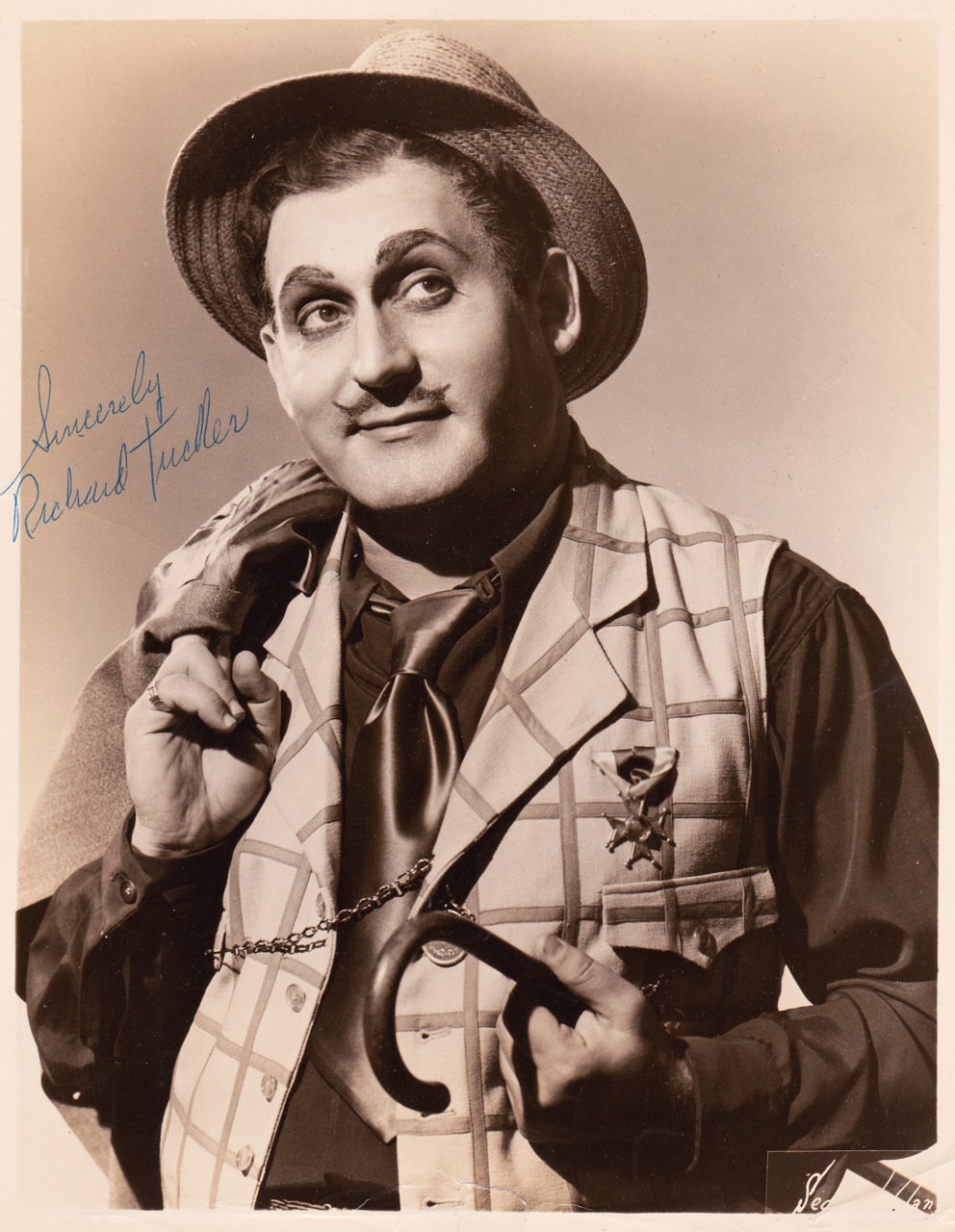 (photos courtesy Charles Mintzer collection)
(photos courtesy Charles Mintzer collection)
Let me first admit I have been an admirer from the very first moment I heard his marvelous tenor on my vinyl turntable. Yet I don’t think he’s the greatest tenor of the 20th century , I don’t even think he’s the greatest American tenor voice of the 20th century –that honor goes to Mario Lanza – but he is without question the greatest American opera singer in his voice category. The voice has all the assets of a unique tenor. Foremost his warm vibrant timbre is instantly recognizable. The singing with perfect pitch has always been rock-solid and radiant with self-confidence. For a full assessment of the voice I refer our readers to P.G. Davis’s fair and to the point analyses in his book The American Opera Singer. Yet there’s one aspect of Tucker’s singing which Davis neglects to mention. As with Lanza –though in a lesser degree – the voice and the singing almost gets another ‘notch’ to it when he sings in English. Every word is understood and the musical line is as perfect as can be. Even the interpretation gets an extra touch. And when he sings in English the sobs, the occasional too intruding glottal attacks and other Tuckerisms are remarkably absent. His operetta recordings under Emmerich Kalman (not in these two releases) show how different (read much better) his singing gets when he sings in his native language.

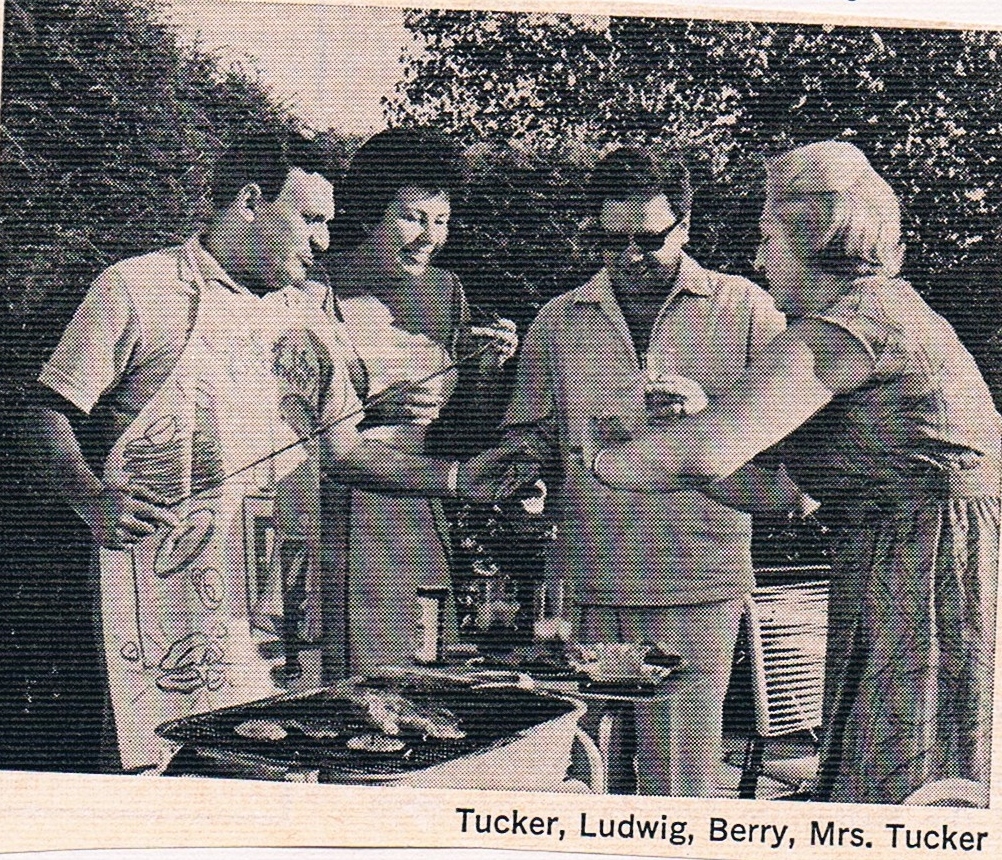
I do have problem with the editing of the booklets and their text -heavily based on Davis’s analyses by the way- which was written by Germany’s ‘Stimmenpabst’ Juergen Kesting. The author refers to Daniza Illitsch (CD1 , Verdi duets) as having an upper register capable of considerable expansion. I wonder whether Mr Kesting actually listened to the CD’s he was writing the accompanying booklet for as Illitsch sounds extremely strained on top, on occasion even painful to listen to. Kurt Baum on the other hand is a victim of Kesting’s wrath describing some of his singing with ‘comically grandiose effects’ which is just a repeat of some prejudices about Baum and moreover plainly dishonest as he sounds pretty exciting and stentorian in the Aida-Trovatore excerpts, nothing comically at all about his singing on the contrary. The younger Kurt Baum did have vocal merit, period. Both cd boxes have more or less the same text by Kesting, strange as the content is quite different and it would have been interesting to see Tucker’s cantorial records being analysed in-depth. Booklet number one also lists Placido Domingo in Tucker’s French opera arias album (CD9, track 9) as singing (in?) the tenor’s aria from Hérodiade!?! Yet the “Ne pouvant réprimer’ sounds like all genuine Tucker to my ears. And in 1964 when the album was recorded in Vienna young Placido was still learning his trade in the young state of Israel. The song "Shir ha Palmach" gets translated as Song of commandos which should be Song of the Palmach. Palmach itself translates as strike forces being the elite forces of the underground Haganah movement. Moshe Wilensky's songs "Katsir Baemek and Sair Eres" get no translation at all and the Goldfaden songs' origins are pretty confusing as well. According to Kesting's booklet Tucker's albums Israel Sings and Hatikvah contain "Cantorial Jewels" (pg.13) which they don't as he could have judged from the orginal album content. Another disturbing typo is the title of Abraham Goldfaden's operetta "Dr. Almasado" (also known as Di Yiden in Palermo) which becomes Alamasada in the booklet( pg.42). The hautingly beautiful song "Kinereth" gets its composer right (Marc Lavry) though without mentioning Avigdor Hameiri who wrote the lyrics.. For the exact content of the recitals included I refer to the amazon link which gives all details. (click here). It’s hard to choose a favorite among the 24 cd’s. They all have their merits and Tucker is a singer who always delivers and never disappoints with his healthy clarion tenor voice. The Soul of Italy album (1965)for instance features Tucker in a very belcantisque almost Mozartian rendition of Neapolitan songs. Some may find the interpretations perhaps a bit too subdued (Tu, ca nun chiagne is a case in point) and may prefer a more passionate, wilder go at the songs. Nevertheless his renditions of "La bella aurora" and "Signore Fortuna" belong to the utmost best in Neapolitan song recordings. So is "Canta pe'mme" on the Sorrento album which was recorded much earlier (1958) and finds the tenor in a less wooden voice. Absolutely splendid too is his Songs from Sunny Italy record, no wonder as it was recorded in 1950 with the tenor in his absolute prime. I do have a weakness as well for his operetta album and his “Rozhinkes mit mandlen” and “Kinereth” recordings could well end up as "desert island" choices with Tucker’s rendition of Gilbert Bécaud’s “Et maintenant” as a strong contender. Tucker’s sings it as “What now my love” while a year later Del Monaco sang it in the original French but 1965 found the Italian tenor already in his vocal decline. Tucker was the second tenor to record Bernstein's "Tonight" (1963) , the first was Del Monaco (1962) whose singing in English -as with most Italian tenors - was a pain though the Italian had the better orchestra and sound.
The operatic albums have their merits as well starting with the Lamento from L'Arlesiana (Franz Allers conducting) as a topper, his Celeste Aida (Cleva, 1949) finds him in excellent voice finishing the aria with the alternate ending (1), the duet from Don Carlo (with Farrell) is also excellent (superb line, sense of rythm and tone) . As for his recorded legacy I think him outstanding in the English "Cosi" under Fritz Stiedry -my only and favorite "Cosi" - but so often he is more impressive in the live recordings. His début Gioconda ranks with Bergonzi, Del Monaco and Corelli as the best rendition of Enzo available. It's a pity his Eléazar wasn't recorded completely as his impersonation of this grand role gives all other tenors (Carreras, Shicoff etc.) a run for their money, Tony Poncet excepted. I'm also quite fond of his outstanding musical Lensky - not surprisingly in English - under Mitropoulos, ditto for his commanding and resonant Grigory in "Boris" and his well-focussed Sound an alarm is still my absolute favorite version of this stirring Handel aria. His singing of the Verdi Requiem also ranks with the best (Bjorling, di Stefano and Bergonzi). Another magical interpretation is his Riccardo in "Un Ballo" under the equally superb Mitropoulos who brings the singer (as he did with Del Monaco in "Forza") to a level of singing he never achieved in his commercial recordings.
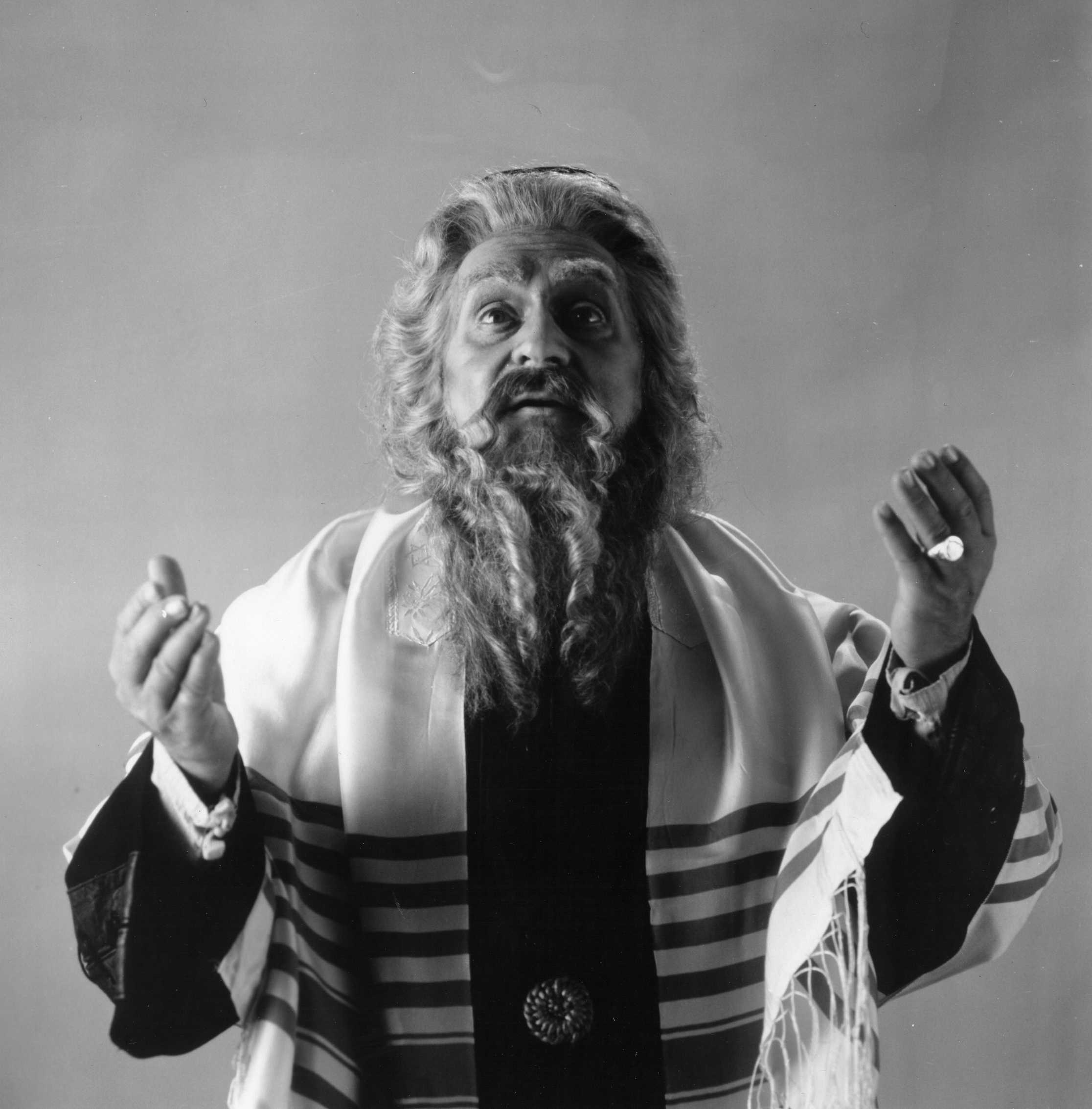
Judging from his vast recorded output and the history of his career Tucker definitely is one of the greatest tenor voices of the previous century yet he still has to take a step back to say Caruso, Gigli, Lauri-Volpi, Schmidt, Tauber, Bjoerling, Del Monaco, Lanza, Di Stefano, and Corelli in their primes. In other words he doesn’t make it to the top ten but neither do Pavarotti nor Domingo in my view. But that he was the reigning American operatic tenor of all times goes without question so get these bargain-priced releases, complete or not, while they last.
(1) see our youtube clip for an old controversy about Tucker doing this involving John Freestone and the Dutch critic Leo Riemens.
As our own personal tribute to the tenor's centenary we uploaded to our youtube channel two rare and previously not available (afaik)Tucker song recordings, one goes back to 1941 - a Richard Hageman song - and this may be well the first-ever recording of the tenor's voice (!!!),
The second is Rachmaninov's 'In the silence of the night' recorded with orchestra in 1945. Remarkable too is that the fact Tucker goes for a pianissimo ending of the song. He rarely did so afterwards in his singing
Thank you Mr Tucker for all the vocal splendour you have given us.
RvdB